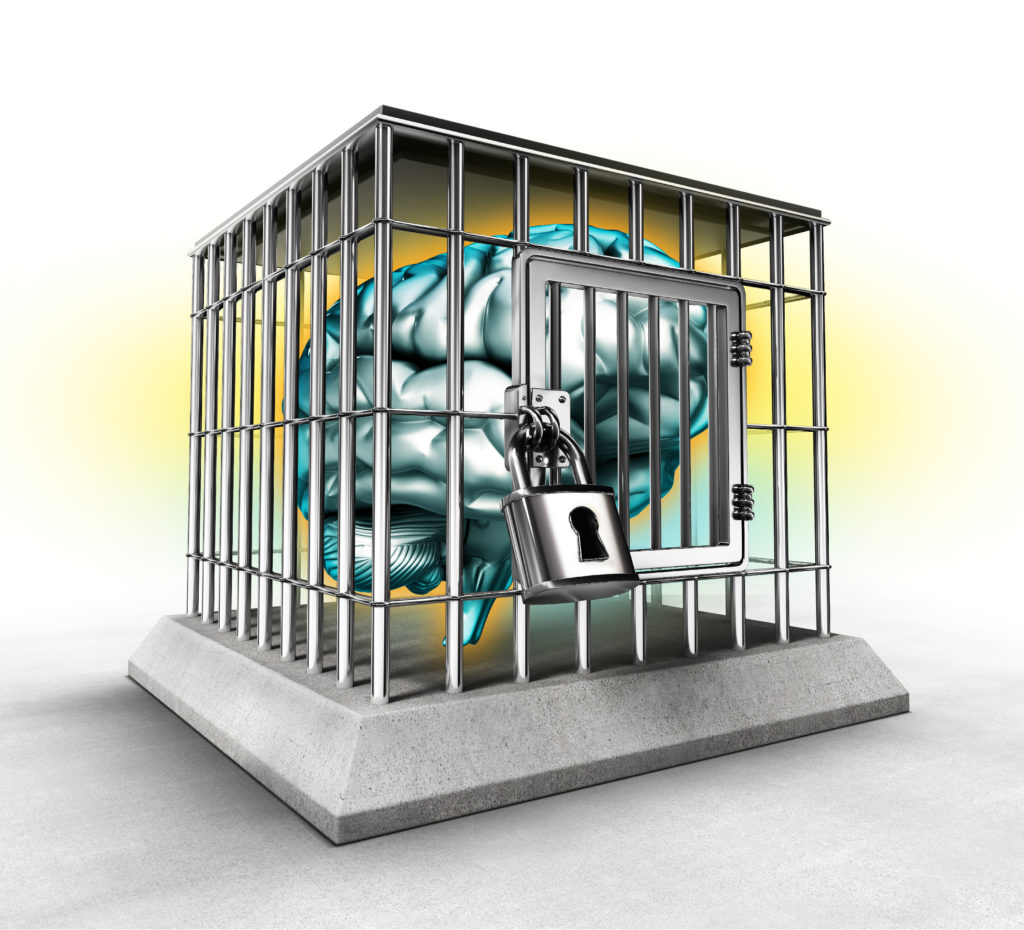
A team of neuroscientists, led by Tania Singer, at the Max Planck Institute for Human Cognitive and Brain Sciences, studied the relationship between certain parts of the brain and the capacity for empathy. What they found is that the main obstacle for having empathy is when we project our feelings on other people. This projection of our feelings is referred to as emotional egocentricity bias (EEB), which is the tendency to rely too heavily on one’s own perspective and/or have a higher opinion of oneself than reality. It sounds like narcissism.
We naturally tend to measure other people’s feelings by our own feelings. So, if we are in a happy mood and someone we come across is sad, then our own feelings will cause us to downplay the other person’s unhappy feelings. Likewise, if we are angry, then we are more likely to interpret the emotions of people around us as being angry as well. Our EEB biases our judgment or even blinds us to the feelings of others, which in turn reduces our capacity for empathy. We only see ourselves in other people. We don’t actually observe people’s feelings as they are when we experience EEB or, in plain English, when we are full of ourselves.
The ability to distinguish your feelings from the feelings of others, essential for empathy, all takes place in a part of your brain called the right supramarginal gyrus. If it is damaged, then you would become extraordinarily egocentric and blindly project your own emotions upon others. However, it might also be perfectly healthy but inactive, which causes the same effect. When we have to make very quick decisions in a moment of danger, then the brain deactivates the parts of the brain that are deemed non-essential. A couple of those “non-essential” parts are your right supramarginal gyrus and your prefrontal cortex (PFC), the area of your brain that includes rational decision making and emotional regulation (you might need that!).
We might consider our worldwide shared crisis of COVID-19 to understand this. Most governments have shut down non-essential businesses to stop the spread of the virus. Non-essential for what? Survival. We need medical care and food (and also liquor stores and Hobby Lobby-for coping and arts and crafts??). Likewise, in times of crisis, your brain focuses on survival, which is a necessary but very egocentric way of functioning. So, when a bear is chasing you, empathy goes out the window. That makes sense. The bear does not want your understanding; it wants your potato chips. But what about a perceived crisis, like trying to meet a deadline? This pressure can also shut down your PFC and your right supramarginal gyrus.

So, how can you activate your right supramarginal gyrus so you can maintain your empathy for the people that need it? First, your supramarginal gyrus is part of your somatosensory system. It is the area of your brain that processes your bodily sensations, touch, pain, and vibration. So, the first step is to make yourself aware of what your body is feeling. Are you cold, hot, relaxed, tight in our chest, head aching, stomach rumbling, tired? You have to get in touch with your body. Body scanning is a simple exercise that can help you to do this. But you also need to touch and to be touched by people for whom you care. Get a hug from someone who cares for you.
The next step is to get in touch with your emotions. Strong emotions, like fear and anger, signal the parts of your brain that cause this shut-down of non-essential parts of the brain. This means that emotional regulation is key to re-activating your empathy system. Emotional regulation “refers to the process by which individuals influence which emotions they have, when they have them, and how they experience and express their feelings.”(Gross et al. 1998) When your brain is hijacked by fear or anger or just ongoing stress, you lose the ability to regulate your emotions. You are held hostage by your most instinctual feelings of fear and anger, which essentially make you no different than wild animals.

The key to gaining control of your emotions is to quell your fear and anger found in your amygdala, lower your overall stress levels, and engage your PFC, where rational thinking occurs. Ultimately, you want your PFC to be in command, not your amygdalae. It doesn’t go well over the long term, if not. It would be like the president handing all the power to the security team. There may be a situation where it is necessary, but it doesn’t help much in running the country. All they would do is eliminate threats to the president.
So how can you hand the controls back to your PFC? There are several ways to do this. Here are a few:
- Take a few deep breaths. Regulating your breathing and your heart rate help to deactivate your amygdala (fear center).
- Count down from ten. This cognitive exercise activates your prefrontal cortex(PFC), which in turn deactivates your amygdala. At the very least, it gives your brain time to process your feelings a little more to realize your life is not indeed threatened.
- Redirect your focus to some poetry. Poetry engages our PFC through the processing of language and can evoke more positive feelings.
- Tell a joke. This engages your PFC. Also, humor is a great fear and anger disarming mechanism.
- Regular exercise. Exercise lowers your cortisol (stress hormone) and releases all kinds of wonderful chemicals in your body that make you feel good.
- Get a good night’s sleep or take a nap. Rest may be the most crucial key to emotional regulation. Just think of a cranky child who didn’t get his nap. Could that be you?
- Talk about your feelings to someone who cares. Expressing and name your feelings gives you control over them. Think of your feelings as the pressure building up in a steam engine boiler. If you don’t let off some steam, you will blow up.
- Practice meditation, yoga, or centering prayer. Studies show practicing meditation, centering prayer, and yoga, which combines both movement and meditation, can build up your emotional regulation “muscles.”

If you really want to increase your emotional regulation, activating your empathy muscle (right supramarginal gyrus), you need to get to the heart of what triggers strong, negative emotion in you. All of the above practices really just amount to good coping skills. But what is it that you are coping with? That will take a more in-depth exploration of your spiritual and emotional life. Taking the GPS Spiritual Inventory, along with a debriefing session with a Soul Metrics Coach, will help you identify the sources of your emotional triggers.
Free your God-given right supramarginal gyrus and free your empathy!

Recent Comments